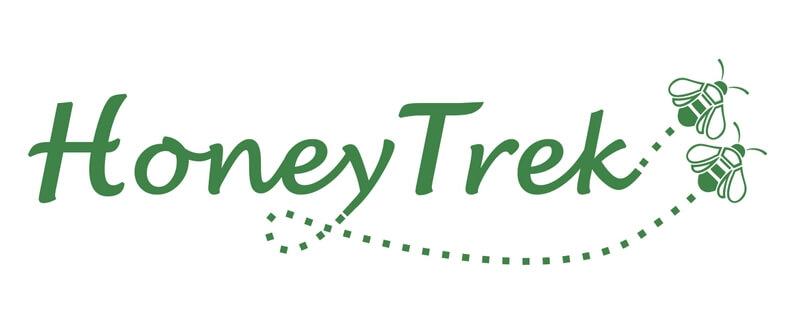Mike & Anne Howard Works Remotely
Digital Nomad Life
100
% Time Traveling
| Past Year: | 22 Cities | 7 |
| Career: | 415 Cities | 42 Countries |
* All figures approximate as of October 2016
How and why did you start working remotely?
After working the 9-to-9 in NYC for over a decade we decided that the world was too big, and our vacation time was too short. So we quit our traditional jobs and set out on a 500-day honeymoon around the world. Half way through the journey our travel site HoneyTrek.com had gained a loyal following and enough acclaim (Conde Nast Traveler, Daily Mail, LA Times, etc.) that we were able to continue traveling (today is day 1,703 on the road) and run it as business from the road.
What advice would you give someone considering a remote job?
Don’t overplan. You do not need a steady stream of “passive income.” You do not need special skills. You do not need a padded savings account. You DO need tenacity. You do need to be willing to make some sacrifices. You do need to realize your life will change in ways you can’t imagine right now (mostly for the better). You do need to become very resourceful.
How did you convince your company to let you work remotely?
Anne and I both quit our jobs (both giving our companies 3-6 months’ notice). It turns out, our bosses were so excited for our journey, bordering on extreme jealousy, and in both of our cases, they wished us luck and asked us back in the event when we returned.
What are the biggest benefits to working remotely?
Complete freedom, both in our schedule and our location. We can work during the bad weather, and get outdoors when the sun is shining. If we want to work from Europe, we hop on a flight and get inspired. Untethering from an office is one of the most rewarding experiences of our lives. We are growing so much as people, and in business as a result.
What are the greatest challenges to working remotely?
We are a husband and wife team which has incredible benefits though sometimes work can creep too much into our personal lives. Going to different offices with different projects each day would probably relieve some of that…but then we wouldn’t be a on a tropical island together and able to go surf and hike when we wanted.
(For someone working remotely for a company) I would say the biggest downside is not building strong relationships with co-workers and your boss, which could limit advancement, assuming other employees are in the office daily.
Do you keep a regular remote work schedule? What is it?
We don’t have a boss, or anyone telling us how/when/which projects to tackle. We are travel journalists and photographers so when we are in a new destination, that means we’re out exploring, photographing, researching, and experiencing a destination to its fullest. Then we hunker down and work like mad for however much time we have between trips—hours, days, weeks. When we are in sedentary, our work schedule is full-time, 12-14 hours of work per day (each) but whenever we feel like we need a break, we’ll take a hike, kayak, or road trip.
How do you avoid becoming distracted when working remotely?
If you have a deadline, close your email and social media until the project is complete. Put in a nice pair of noise-cancelling headphones and some music that gets you cranking. It’s okay to take on projects around the house in the middle of the day (that’s one of the benefits of working remotely), but only do them if you can actually finish them in less than 15 minutes, then back to work.
What is a remote work pain point, and how do you address it?
Lack of social life with co-workers. Solution: create a social life with people you actually choose/want to hang out with.
Do you use coworking spaces? What are the best ones?
We don’t use co-working spaces. I have heard good things, especially for people starting tech businesses who need to be surrounded by like-minded and well-connected folks. But for us, that’s an added expense without the return.
What gear can't you work remotely without?
- Power Strip: It enables you to turn one adapter into a charge for multiple devices—essential when working on the road.
- Logitech 1080p Webcam: A high quality, external webcam makes Skype conference calls infinitely more professional.
What apps or websites can't you work remotely without?
- CamScanner: This smart phone app can scan and fax your documents for contracts or other formal paperwork.
- Prosper Daily: View all your bank and credit card accounts in one place, get alerted of fraudulent charges, and keep an eye on your credit score.
Do you work from a home office? How is it organized?
We do not have a home office. We run our entire business on 2 Dell XPS laptops, DSLR camera, an external hard drive, a highlighter, and a pen.
How do you stay in touch with virtual teammates?
Skype, Google Hangouts, and email. We can’t say enough good things about video conferencing.
Do you have tips for saving money while working remotely?
Digital Nomads: Get into house-sitting (we haven’t paid rent since 2011, and we’ve only paid for 25 hotel room nights since December 2013). When your monthly burn is less than $250/person, you can truly focus on that work-life balance.
What does your remote company do?
HoneyTrek is an inspirational travel hub for hundreds of the world’s most spectacular destinations across seven continents. It began as Anne and Mike Howard’s travel blog and the story of the world’s longest honeymoon, and has expanded to become a trusted resource for insider recommendations, inspiring stories, and practical tips for anyone looking to make their travel dreams a reality.
Would you consider returning to a traditional office job, or are you remote for life?
Remote for as far as I can see into my future. For us, running our own business is akin to stepping outside of the Matrix…it would be very hard to subject ourselves to that life after seeing what is really out here. I would recommend everyone try working remotely (for a company, or for themselves) for at least one year in their 20s or 30s, and if you don’t like it you can always go back…it’s just better to find out then have regrets later. Remember, nothing is a one-way street.
How has working remotely impacted your career plans?
Our career plan was never to be millionaires, or be the head of a global company. Our career plan was to be financially stable, have the freedom to travel, and have a good work-life balance. And based on that criteria I would say our careers are on an almost exponential growth trajectory.
How do you stay connected with your local community?
The HoneyTrek Facebook page has been an amazing tool for staying connected with previous co-workers, old friends, new friends, and family. We are in communication with hundreds more friends now that we are remote, than when we were full-time in NYC.
How do you stay connected to your professional community virtually?
LinkedIn, HoneyTrek Facebook page (great for showing our professional community what projects we are involved in), Facebook groups within our niche, Quora, and commenting on blogs/social posts written by people in our professional community.
How has your remote job impacted your life outside of work?
Since remote for us means thousands of miles from NYC, and often times not based in America or even an English-speaking country, our social life has become different, but quite interesting. House-sitting has been a great way to quickly integrate into community, the homeowners always introduce us to their neighbors and friends, then invites and opportunities often unfold from there. We’re outgoing and love meeting the locals so we’ll go also to hole-in-the-wall restaurants, dive bars, and music clubs, not knowing a soul or even the language. Walk into any place with a smile and an open mind, and good things happen.
How do you manage work life integration?
The lines between work and life are incredibly blurred for us, which has its pros and cons. It can be difficult to peel out time for relaxing when there is always a project waiting to be completed.
How do you stay physically active while working remotely?
We try and start each day with 10 minutes of yoga or sit-ups/pushups. It might not be much and we always try and do more later in the day, but at least we have that under our belt. We love being outdoors and love exploring on foot, bike, hikes, kayak, you name it.
How does working remotely impact your diet?
Our diet is WAY better now that we are in control of our own meals and just eating at the corner deli. Our food is fresher, healthier, and to our tastes.
How do you cope with feeling lonely while working remotely?
We work together, so that reduces any loneliness. There is always someone to socialize with, even if they are a friend you haven’t met yet. The world is awesome like that!
What are your tips for making friends while working as a digital nomad?
Put yourself out there. Go on hikes, pub crawls, walk around a city alone, and strike up conversation. You will be surprised how friendly people are in other countries. And when they hear that you work remotely, and get to travel all over, they will be enthralled and want to grab a beer and hear your story. A good way to get this started is search Meetup.com to find events and groups that match your interest. We love volleyball so we always check to see if there are pickup games.
What are your favorite cities in which to work remotely?
We move between regions of the world every 2-6 weeks, and every place we land has its own unique advantages, it’s just a matter of finding them out early and maximizing each place to its full potential. That said, Seattle and Mazatlan, Mexico, were two of our favorites.

